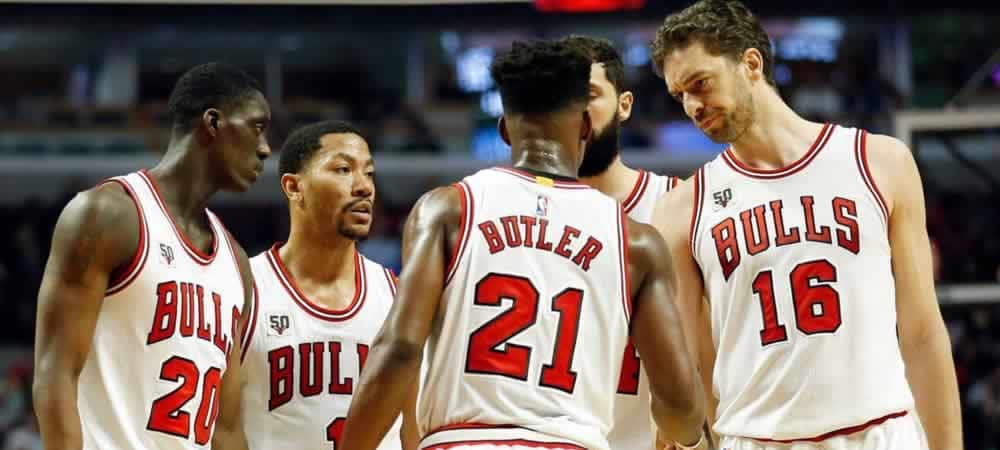- Illinois Governor J.B. Pritzker included 200 million dollars to be generated from sports betting in IL in the first draft of his budget proposal earlier this year.
- If Illinois lawmakers choose to pay sports leagues a royalty on bets they would be the first state to do so.
- The only major Chicago sports franchise that remains silent on the issue is the Chicago Bears.
SPRINGFIELD, Ill. – Sports fans in Illinois may be glad to see that their favorite team is now backing sports betting in the state. However, just as there are winners and losers in a sporting match, there will be winners and losers in any IL sports betting bill that happens to pass through the state’s legislative chambers.
The two parties at odds vouching for the gaming expansion are four out of the five major Chicago professional sports teams and the state’s local casinos and racetracks. Politicians and lawmakers in Illinois stand in the middle of them.
As of now, Illinois House Representative Mike Zalewski has led the way in this year’s legislative session, having introduced House Bill IL HB 3308 back in February of this year.
The bill essentially is a framework for what sports betting in Illinois might ultimately be. There are five different amendments on the table that can possibly be included before it is actually passed.
“I’m for whatever gets 60 votes on a sports betting bill,” said Zalewski. “It is very much incumbent upon me to craft a bill that can get passage in the House.”
The state legislature is currently on a two-week spring break and will return to session on April 30, 2019. Once they return they will have just about one month to decide which side will come out the major winner of sports betting in Illinois. That is if they are able to decide. The Illinois legislature will adjourn on May 31, 2019.
What Do The Sports Franchises Want From An Illinois Sports Betting Bill?
In a joint letter to House Rep. Zalewski, the Chicago Cubs, Bulls, Blackhawks, and White Sox have all jointly expressed interest in a proposal originally drafted by the MLB, NBA, and PGA. The bid calls for sports betting facilities to pay 25 cents per 100 dollars wagered on their respective league.
Provisions for that plan would also include a requirement for those sports wagering outlets to use official league data and provide sports leagues access to wagering history so that they can protect the integrity of their sport from any suspicious betting patterns.
Each sports franchise vying for this option has, “invested a ton of both financial and political capital in this state and in the city of Chicago specifically,” said Zalewski. “You don’t get to be a sports owner without some political moxie. So, we’re trying to avoid opposition here.”
Sports leagues claim that this fee would not only help protect bettors and the sport itself but would actually help encourage the leagues to have their fans bet more, thus creating a mutually beneficial relationship.
“That means that our only incentive is to grow the business,” said Dan Spillane, a senior vice president of the NBA. “The more bets there are, then the more money we make, but we’re completely agnostic as to the outcome of any particular bet.”
How Does Sports Betting In Illinois Affect Local Casinos and Racetracks?
Each state that has legalized sports betting has taken the route of applying a tax on the revenue generated by the gaming facility providing the amenity. The route that the sports leagues are suggesting would essentially apply a fee onto the initial handle of sports wagers taken in by casinos.
“No other state has mandated a fee and we believe Illinois should not be the first to do so,” said Cory Wise, general manager of Rivers Casino in Des Plaines.
Sports betting itself is a volatile industry, with sportsbooks being able to lose money on a regular basis without taxes or fees assessed onto them.
According to the New Jersey Division of Gaming Enforcement, after Super Bowl 53 took place earlier this year, N.J. sportsbooks lost more than $4 million dollars due to the heavy amount of payouts that resulted after the game concluded.
“It’s a bit challenging to legislatively mandate a fee that goes to a third-party commercial interest,” said Jennifer Roberts, associate director of the International Center for Gaming Regulation at the University of Nevada at Las Vegas.
“Nevada has had a long history of legal, regulated sports betting without that fee.”
The fee would also mean that the state would have less revenue to ultimately tax and collect for sports wagering providers in the state. This leaves state lawmakers in a very difficult position when trying to decide how to shape the potential Illinois sports betting industry.
Advertising Disclosure
In order to provide you with the best independent sports betting news and content LegalSportsBetting.com may receive a commission from partners when you make a purchase through a link on our site.
News tags: Illinois | Illinois sports betting | MLB | NBA | PGA

– In his career, Hasan has worked both local and state government positions—including the Attorney General’s Office in Florida. On top of being familiar with the legislative process, he has also been researching and writing on the legality of sports betting across the US. Outside of work you’ll most likely find him producing or playing music, playing sports, or working on creative writing projects. You’ll also catch him at Doak Campbell Stadium cheering on the Noles.



 College Football Betting
College Football Betting Best Online Sports Betting
Best Online Sports Betting Best Legal NFL Betting
Best Legal NFL Betting States With Legal Sports Betting
States With Legal Sports Betting Sports Betting Events
Sports Betting Events




